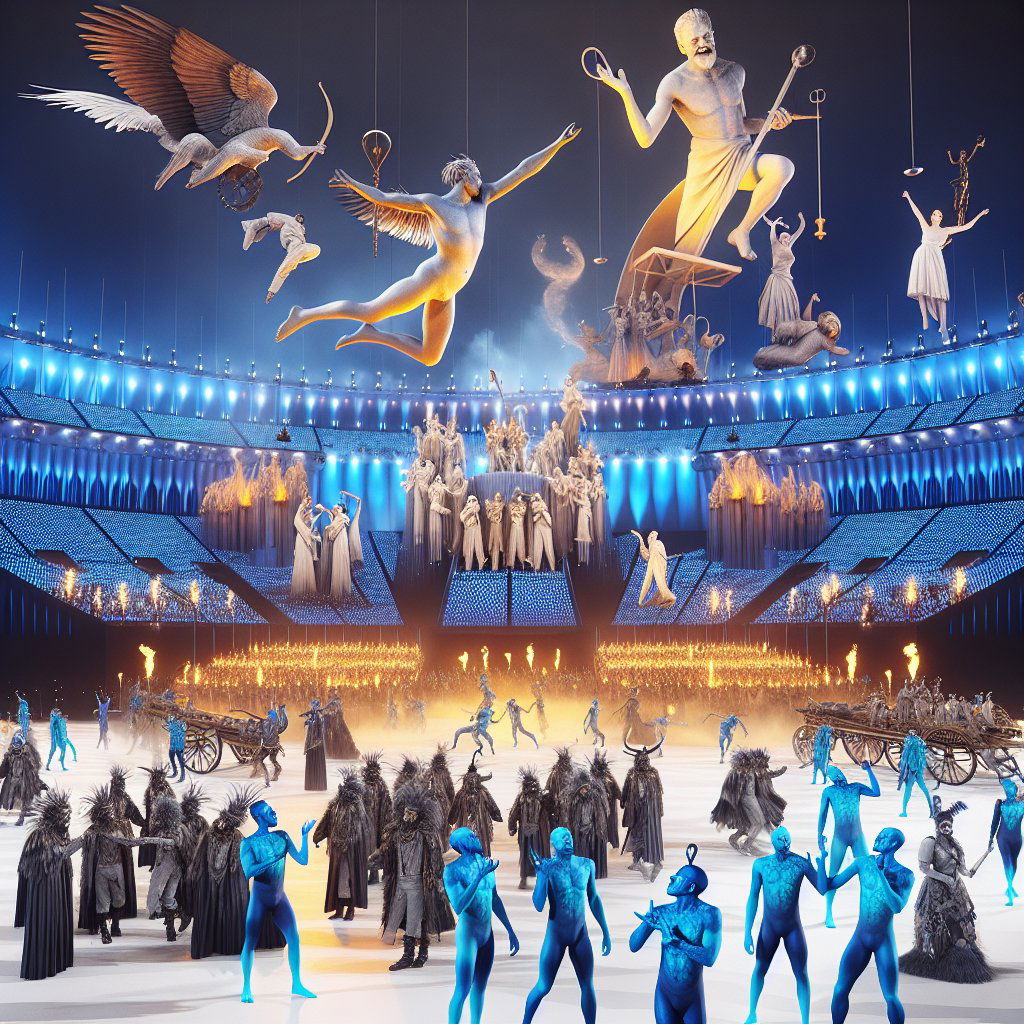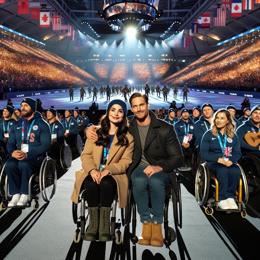Image created by AI
Paris Olympics Organisers Express Regret Over Ceremony Scene Amidst Religious Controversy
The Paris Olympics have come under fire due to a contentious segment of their opening ceremony, which has led to an official apology from the organisers for any disrespect felt by religious communities, especially Christian groups and French bishops who expressed strong disapproval of what they interpreted as mockeries towards Christianity.
In a display meant to convey the spirit of inclusivity and the celebration of diversity, the segment involved dancers, drag queens, and a DJ representing scenes reminiscent of the Last Supper, a seminal event in Christian lore noting the final meal shared by Jesus with his apostles before his crucifixion. Theatre director Thomas Jolly, tasked with choreographing the event, has faced criticism despite his intention to foster unity and reflect France's republican virtues of liberty, equality, and fraternity.
The ceremony held on the 26th of July was also noted for highlighting French actor Philippe Katerine, who, adorned in blue paint and in minimal attire, portrayed Dionysus, the effervescent Greek deity of wine and festivity. Jolly describes the vision for the opening spectacle as one akin to a grandiose pagan feast paying homage to the Olympian gods.
Moreover, the ceremony included a haunting representation of a blood-stained, decapitated head, an allusion to Marie-Antoinette. Displayed in the Conciergerie, the scene invoked the historic guillotining of the French queen and her husband post the 1789 French Revolution—a potent symbol of France’s turbulent past and journey to democracy. Jolly assured that the imagery was not meant to celebrate the guillotine as an apparatus of death, but its reception was varied.
Anne Descamps, speaking for Paris 2024, clarified that causing offense was never the intention, and apologies have been extended for any hurt that was inflicted unintentionally. It appears that the French public held differing views, with Paris 2024 commissioning a Harris poll indicating an overwhelmingly positive response to the opening ceremony among the locals.
The event notably caught the attention of global audiences, with American broadcaster NBC reporting that it was the most viewed opening ceremony since the London 2012 Olympics, while German broadcaster ARD announced that it had attracted its largest audience in 20 years, as per information from International Olympic Committee spokesman Mark Adams.
The incident highlights the challenging balance organisers must maintain when incorporating artistic expression and historical references within a globally broadcasted event while still upholding respect for diverse cultural and religious sensitivities.










